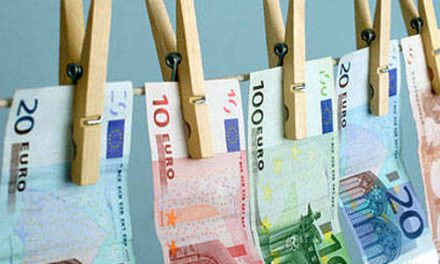Its creditors have other ideas.
For the past eight years, Athens has not had control of its economic policies, having accepted a series of constraints and reforms in exchange for loans that prevented it from tipping into bankruptcy. Officials from the so-called troika — the European Commission (EC), the European Central Bank (ECB) and the International Monetary Fund (IMF) — are now doing their best to ensure the handcuffs stay on.
While they all agree that the time has come to formally end the bailout program, they’re less eager to give Greece the full freedom they have given other countries that went through a similar process.
“When you owe the bank a million euros, it’s your problem — but when you owe a billion euros, it’s the bank’s problem,” one eurozone treasury official said. “They owe us more than €200 billion, so we can’t ignore what happens in Greece.”
‘A short leash’
The eurozone finance ministers gathering in Brussels on Thursday hopes to finalize Athens’ exit package by June 21, in preparation for the formal departure in August. But they have already decided that Greece will be subject to more scrutiny than Cyprus, Ireland, Portugal and Spain — the other countries that successfully completed an EU bailout program after the 2009 sovereign debt crisis.
Where the other governments are subject to two audits a year by the European Commission and the European Stability Mechanism, Greece will receive what the Commission calls “enhanced surveillance” — four visits a year from the monitoring team.
As with other countries, visits from the Commission will continue until Greece has paid back 75 percent of the roughly €230 billion it owes its eurozone creditors, while the ESM will continue its scrutiny until the last euro is paid back.
“This will be a short leash,” said another eurozone official. “Remember they have a lot of debt [to pay off].”
Greece will also be required over the next two years to implement the tax hikes and pension cuts it agreed to as part of the bailout negotiations. It has also agreed to maintain an annual budget surplus target of 3.5 percent of economic output for the next five years, and then roughly 2 percent until 2060.
A senior official from the opposition New Democracy party pointed to the coming pension cuts, tax hikes and the high levels of post-program surveillance as proof of continued austerity, stressing that the “additional fiscal measures” would cost Greece around €5 billion.
The government’s claim that Greece’s exit from the bailout program will be “clean” is “another dirty lie of the government, to sweeten the impending measures,” was how New Democracy leader Kyriakos Mitsotakis recently put it.
Stricter conditions
Eurozone diplomats working on Greece’s post-program package are adamant that the heavy demands on Athens are warranted, following years of political crises and broken promises.
If anything, they’d like the restrictions to be stricter.
Eurozone diplomats close to the talks are wary that more Greek drama could re-emerge from the current or a future government, which they fear might be tempted to dismantle everything that’s been achieved in the last eight years.
The ESM’s managing director, Klaus Regling, has expressed concerns behind closed doors that reforms put in place during the program will be rolled back after it’s over.
“Greece will look for as much independence from this [exit],” another eurozone diplomat said. “[But] if the markets reject them, they’ll be back in a program.”
The Syriza-led government, facing a new election next year, is eager to portray the end of the program as a full break from its creditors.
“There is neither a bailout extension nor a fake exit, a non-clean or a dirty exit — call it anything you want — in sight,” Greek Prime Minister Alexis Tsipras told his party’s lawmakers last month. “There is a clear completion [of the program], a clean exit.”
The government has already rebuffed calls by ECB President Mario Draghi that it take a precautionary credit line. That would have provided a financial safety net should the government encounter unexpected expenses, but it would have come with unspecified “policy conditions,” according to the ESM.
Debt relief
Greece’s creditors are also pushing to include new conditions as part of a negotiation over debt relief.
In an attempt to make Athens’ debt more sustainable, countries like France and Italy have proposed putting in place a program in which the country’s debt burden would automatically be lowered if its economy runs into trouble.
That has raised fears among other creditor countries that future Greek governments might deliberately sabotage the country’s economy to reduce its debt pile.
While Italy, France and the IMF seem ready to accept offering this type of debt relief without condition, Germany, Finland and the Netherlands are insisting that Athens accept measures that would ensure it does everything in its power to maintain growth.
“You need a way to stop the Greeks from going back to their old ways,” a third eurozone official said. “They need to stick to their reforms.”

















